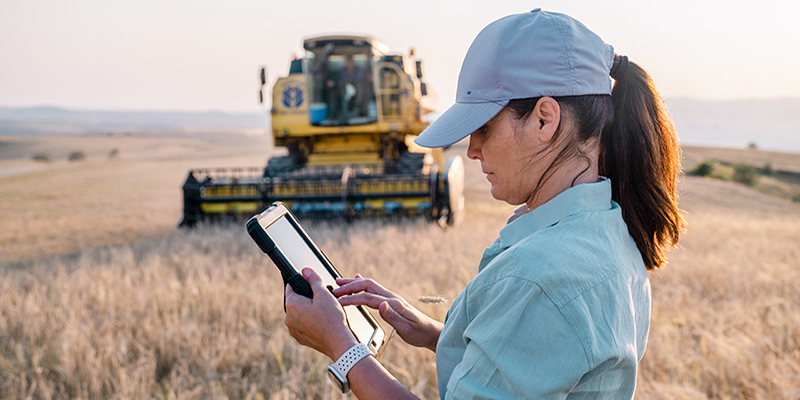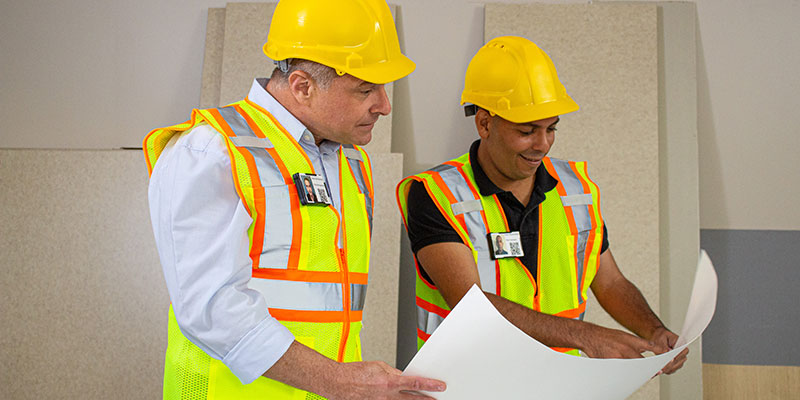Empowering Rural America: How Connectivity is Revolutionizing Agriculture
In the heart of rural America, agriculture isn't just an industry, it can be a way of life. Sprawling farmlands and ranches, family-owned for generations, form the backbone of the nation’s food supply. But technological challenges in rural areas have long been a hurdle for farmers trying to modernize operations, boost efficiency and remain competitive in an increasingly connected world.

The Digital Divide in Rural America
Rural areas face unique connectivity challenges. While urban and suburban regions often enjoy high-speed internet access and robust cellular networks, rural communities can struggle with limited options and slower speeds. This connectivity gap is stark: approximately 17% of rural Americans lack access to broadband, compared to only 1% in urban areas, and many rural farms lack stable broadband options entirely, limiting their ability to utilize data-driven tools essential for modern farming practices, such as real-time monitoring and data analytics (FCCi).1
This gap in connectivity has far-reaching consequences, especially for the agricultural industry, which increasingly relies on modern technologies like precision farming, IoT devices and real-time data to optimize production and operations.
To resolve these challenges, the cellular industry is stepping up to provide solutions that connect farms to the future, unlocking the potential of advanced technologies for smarter, more sustainable agriculture.
How Connectivity Transforms Agriculture
The agriculture industry needs reliable internet to enable advanced practices like precision agriculture, which has been shown to improve crop yields by 11% and decrease input costs by 9%.2 The advent of high-speed internet and cellular networks in rural areas allows farmers to take advantage of several key innovations:
Precision Agriculture: Connected devices and sensors allow farmers to gather real-time data on soil conditions, crop health, weather patterns and more. This data can be used to make informed decisions about when to plant, water or fertilize crops, significantly improving yields while reducing waste and resource use. It is essential to the operations and performance of these technologies to have a stable connection in the most rural of areas.
Security: It can be challenging for farmers to cost-effectively discourage intruders, account for equipment worth thousands of dollars and protect thousands of lives spread across wide areas. Solutions that track and monitor your assets remotely require connectivity.
Automated Machinery: Today’s farms are adopting automated tractors, harvesters and drones, all of which rely on stable connections to operate efficiently. These technologies help farmers cover more ground, reduce labor costs and increase productivity.
Livestock Monitoring: Sensors and wearable devices can track the health, movement and reproductive cycles of livestock in real time. Farmers can quickly respond to any issues, ensuring the well-being of their animals while reducing loss and improving overall farm management.
Supply Chain Optimization: Connectivity ensures that farmers can streamline operations from farm to market. With real-time tracking and logistics solutions, farmers can reduce delays, ensure product quality and deliver goods more efficiently.
Sustainability Initiatives: With the help of data-driven insights, farmers can implement more sustainable practices. Smart irrigation systems, for instance, allow for water usage to be optimized, conserving valuable resources. Reducing chemical inputs and improving crop rotation can also enhance soil health, all while increasing profitability.
THE UScellular COMMITMENT
Expanding broadband and introducing 5G capabilities in rural areas can empower agriculture with transformative technologies, fostering a more efficient and sustainable future for farming. UScellular believes that rural communities should have access to the same high-quality connectivity that urban areas enjoy. That’s why we’re continually expanding our network, investing in new technologies like 5G, and ensuring that farmers and agricultural businesses can harness the power of the latest innovations.
Our commitment to rural America goes beyond just providing cell service. We actively work with farmers to understand their unique challenges and develop customized solutions that can enhance operations and build a more sustainable future. Whether it's through our partnerships, tech initiatives, or ongoing efforts to improve rural broadband, we’re helping rural communities stay connected and competitive in a global economy.




